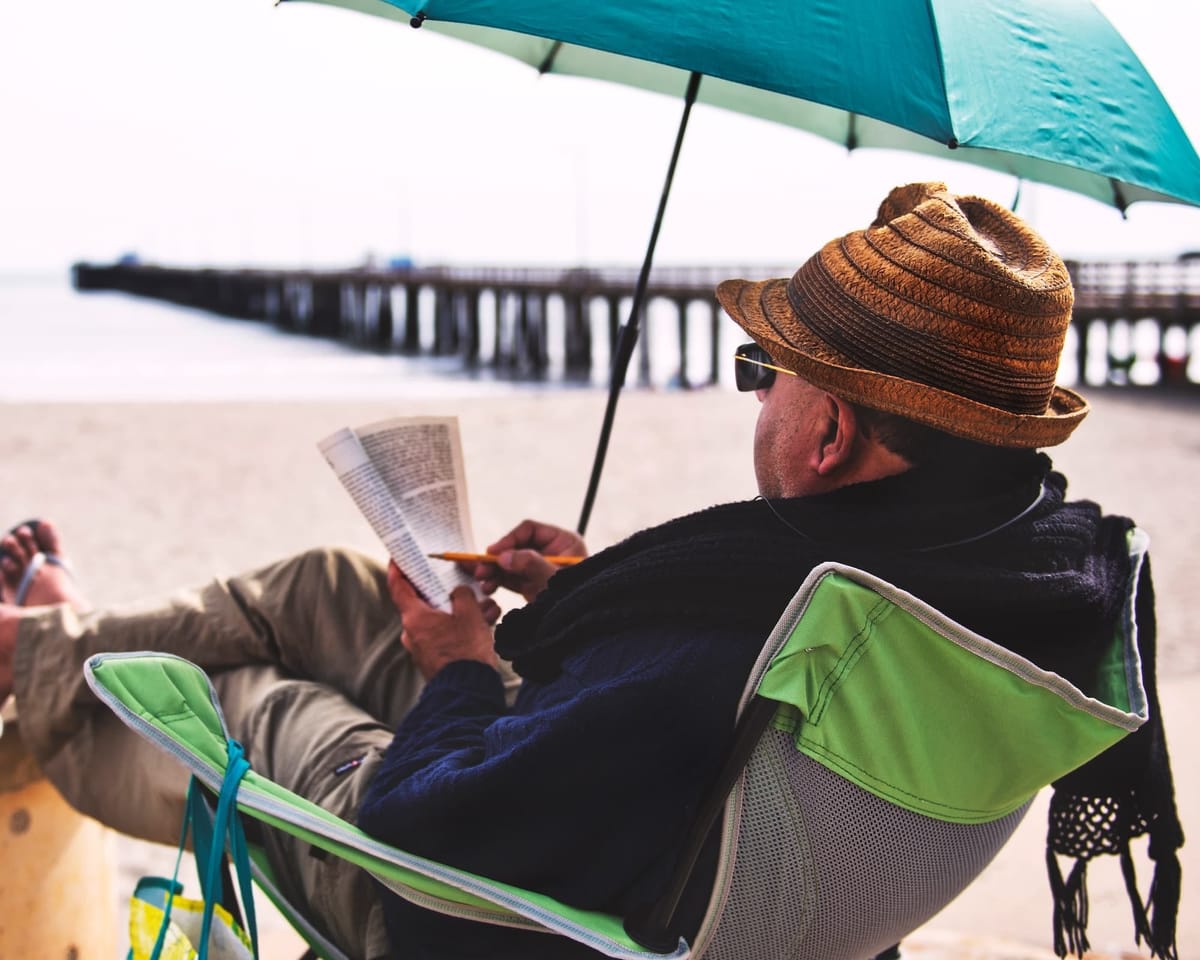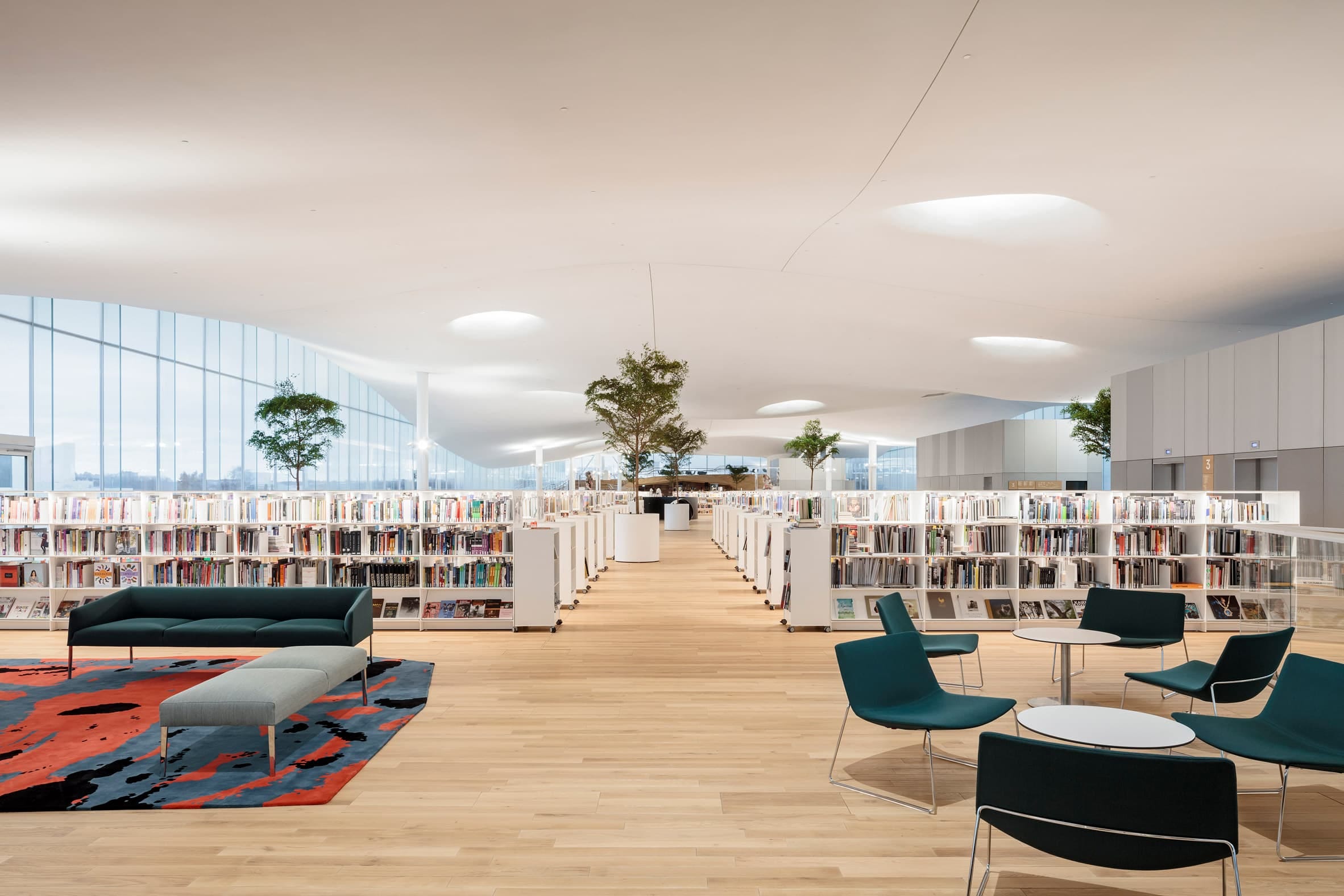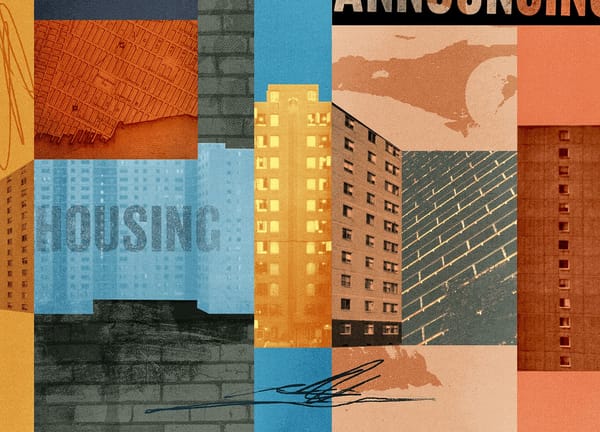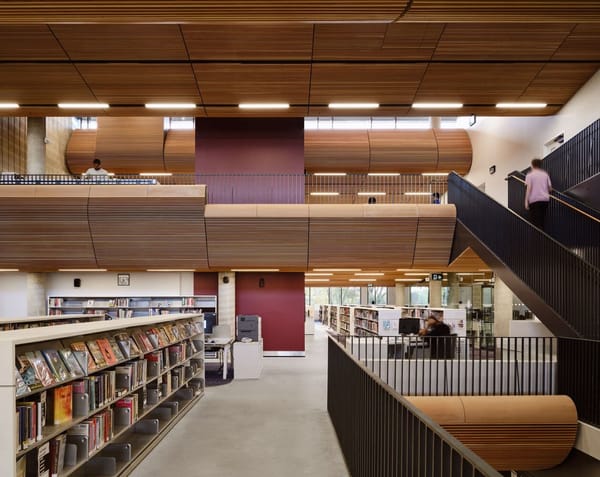The Farther Shore
A new subject area for Frontier Magazine, plus some beach reads


Hi everyone,
There is a holiday this week in both countries I call home (🇨🇦🇺🇸🎆), so, rather than a standalone essay, here are some updates and recommendations. Regular service resumes next Wednesday.
Let’s begin with housekeeping. Last Friday’s issue for paying subscribers is now free for everyone to read. In it, I announced that we’re expanding the subjects covered by Frontier Magazine to include education, broadly defined. Here’s some of what I wrote to suggest that breadth:
I’m curious about what’s happening to the traditional model of higher education, especially in the perceived tensions between the humanities and STEM subjects. I also follow experiments, whether it’s political conservatives setting up their own universities, tech startups “disrupting” elementary education, COVID-wary or public school–skeptical parents choosing to home-school their children, the opportunities and challenges facing public-library systems, or artist collectives radically reimagining how people come together to teach each other.
In this vein, two recent pieces have caught my eye. First is programmer and writer Simon Sarris, whose essay “School Is Not Enough” expands on an earlier piece to argue that children need “useful childhoods,” and that usefulness confers on them a necessary agency. “The ever-longer march through school creates a bizarre barrier separating the student from reality. As a consequence, childhood consists of the age when one can intuit very well how the world works at the same time one is prevented from acting upon it meaningfully.” I have two young boys in or entering the Toronto District School Board system and essays like Sarris’s are useful to think with and against. A related recommendation: ten years ago, the exceptional writer and filmmaker Astra Taylor wrote a reminiscence of her “unschooling.”
Second: a week and a half ago, Olivia Chow was elected mayor of Toronto. A month before that, her campaign announced that, if she won, her administration “will ensure all 100 public libraries are open seven days a week and she will expand weekday hours of libraries across the city.” I thrilled to the news, as I think the Toronto Public Library is one of the city’s greatest treasures. But I also know libraries are besieged by funding cuts and by the assumption they can offer ever more social services. This Walrus essay by Nicholas Hune-Brown suggests just how difficult things have become and asks, “Where does the library go from here? Because it’s clear that being ‘the last public space’ isn’t a privilege. It’s a sign that something has gone terribly wrong.”
The essay, which quotes librarians across Canada, is a useful rejoinder to books that only celebrate what libraries represent—which is necessary but, in 2023, not sufficient. And, as with the last recommendation, I’ll tack on some older pieces, both by Shannon Mattern, that remain with me years after they were published: “Library As Infrastructure,” which asks many of the same questions as Hune-Brown’s story, and “Fugitive Libraries,” on independent, itinerant spaces for learning.
More on these and related subjects to come.
Beach reads (without the sunburn)
One more thing: this recent Esquire piece suggests that my favorite kind of book, the slim volume, is having a moment. “Novellas, standalone short stories, poetry collections, plays, and experimental cross-genre works” are increasingly popular, Kate Dwyer argues, not least because of “dwindling attention spans, less leisure time, and price hikes across paperbacks and hardcovers.” These are all true, but in the story, novelist Alexandra Kleeman underscores my own reason for loving these books: “Instead of something feeling ‘slight’ because it’s short, we can appreciate the intensity of it and the luxury that is concision.”
One category not mentioned in Esquire is “collected lectures.” I love reading or listening to an esteemed figure, often late in their career, offering a series of linked meditations on subjects dear to them. So here are a few that fit easily into your tote bag and you can finish before you have to re-apply sunscreen.
In Canada, the gold standard lecture series is the CBC Massey Lectures, and the edition most relevant to Frontier Magazine is Ursula Franklin’s 1989 classic The Real World of Technology. You can read the book (buy in the US or Canada) or listen to the original lectures here.
I’m a longtime fan of classics scholar and critic Daniel Mendelsohn, and his Three Rings: A Tale of Exile, Narrative, and Fate (buy in the US or Canada) outlines the stories of three exiled writers, relates them to his own efforts in memoir-writing, and is a daring formal experiment that examines a method of storytelling using the method itself. It’s beautifully done; when I finished it, I returned to the first page and began reading again.
Another preoccupation is what Edward Said memorably called “late style”, and critic Helen Vendler’s Last Looks, Last Books (buy in the US or Canada) is a beautiful study of the last books by five titans of twentieth-century American poetry: Stevens, Plath, Lowell, Bishop, Merrill.
Three books, three days on the beach, only about 300 pages.
🌴🌊🍹 OK, OK, in case you think I’m unwaveringly serious, let me make one final left-field recommendation: play John Carroll Kirby’s new album Blowout at your next gathering. Suddenly it’s 1976, there’s a cocktail in your hand, and you’re stepping off the shag rug and out onto the patio. The salty Pacific air gently lifts your collar and, for a moment, all is right with the world.
Love all ways,
Brian





